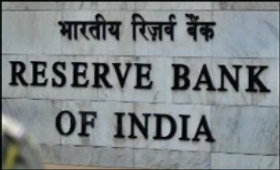|

|
RBI redefines non-cooperative borrowers
|
|

|
|
| Top Stories |
 |
|
|
|
SME Times News Bureau | 23 Dec, 2014
The Reserve Bank of India (RBI) Monday redefined the term non-cooperative borrowers to include those who block legitimate efforts of the lenders in recovering their dues, in order to allow banks to classify additional loans to them as standard assets.
The cut off limit for classifying a borrower as non-cooperative borrower will be those who have borrowed over Rs.5 crore.
In a circular, the central bank said a non-cooperative borrower is one who defaults on timely payment of dues despite having the ability to pay.
A non-cooperative borrower is one who thwarts lenders' efforts in recovering their dues by: not sharing necessary information; denying access to the financed assets/collateral securities; and hindering sale of securities and others.
"In effect, a non-cooperative borrower is a defaulter who deliberately stonewalls legitimate efforts of the lenders to recover their dues," the RBI said.
In the case of an incorporated company, a non-cooperative borrower includes the company, its promoters and directors (excluding independent directors and directors nominated by the government and the lending institutions).
According to RBI, banks and financial institutions (FI) should have a transparent policy for classifying borrowers as non-cooperative.
"A solitary or isolated instance should not be the basis for such classification. The decision to classify the borrower as non-cooperative borrower should be entrusted to a committee of higher functionaries headed by an executive director and consisting of two other senior officers of the rank of general managers/deputy general managers as decided by the board of the concerned bank/FI," RBI said.
According to RBI if any new loan is sanctioned to a non-cooperative borrower, then the bank/FI should have higher provisioning against such loans as applicable for sub-standard loans.
However the RBI has allowed the banks/FIs to treat such new loans as standard assets for the purpose of asset classification and income recognition.
|
|
|
| |
|
|
|
|
|
|
|
indiyanesan | Tue Dec 23 10:33:27 2014
Is not Dr Rajan aware of the nexus between the Bank Directors who are mostly political appointees and the 'defaulter borrowers' who are mainly with this shady link and hence proudly claim that they are "WILLING' to be classified as defaulters - what action can RBI take on such criminal Directors in the Bank - in fact RBI should recommend to CBI to probe misdeeds by all such Directors of all Public Sector Banks from 1980 till date, during whose tenure, many loss inflicting loans were sanctioned and these Directors have coolly retired now.

|
|
|
|
|
|
|
| |
| Customs Exchange Rates |
| Currency |
Import |
Export |
US Dollar
|
66.20
|
64.50 |
UK Pound
|
87.50
|
84.65 |
Euro
|
78.25
|
75.65 |
| Japanese
Yen |
58.85 |
56.85 |
| As on 13 Aug, 2022 |
|
|
| Daily Poll |
 |
 |
| PM Modi's recent US visit to redefine India-US bilateral relations |
|
|
|
|
|
| Commented Stories |
 |
|
|
|
|
|
| |
|